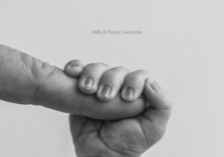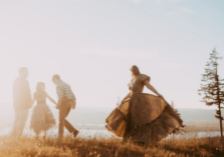Alter Egos: Discover You Super Hero Secret Identity with High-Performance Coach Todd Herman
Remember when you were a kid and you spent hours playing and creating a secret identity? Making up a persona for when you played house or when you pretended to be a business person, maybe wearing your mom’s too big heels or carrying dad’s briefcase around the playroom? Kids are naturally creative and playful, and we tend to lose that spirit as adults.
Enter the alter ego.
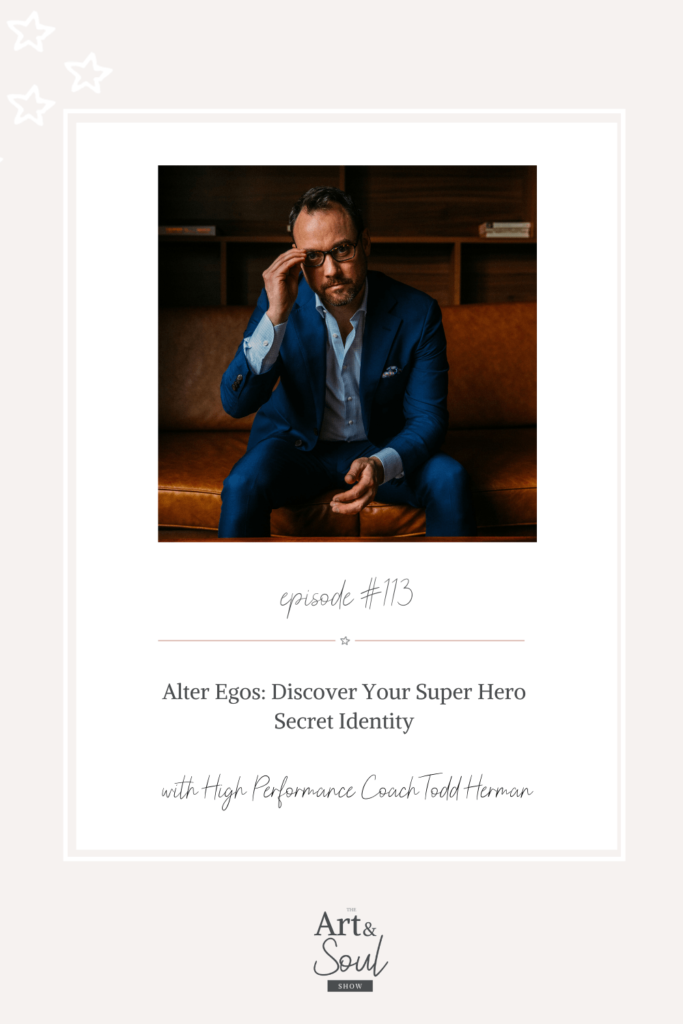
Today’s guest is Todd Herman, an award-winning performance expert and author, and he’s going to be sharing all about alter egos and how creating a secret identity can truly transform your business and its growth.
Todd shares the importance of an alter ego to achieving your vision, why totems are critical to ritualizing your alter ego, and how alter egos are actually a foundation of becoming your most authentic self. You’ll learn how creating alter egos really levels up your confidence and success in both personal and professional situations.
What’s in this episode:
- How Todd’s peak performance coaching business translated from a focus on athletes to include business owners [02:55]
- How Todd discovered his alter ego as a teenager struggling with his mental health [06:07]
- How conversations with his clients about their alter egos helped him build his methodology [08:17]
- How your alter ego is kind of like a costume that is an extension of you and how it helps you get over the hurdle of starting something new [11:23]
- How your alter ego is contextual to the role you’re playing (you can have more than one alter ego) [13:13]
- How multiple self theory has replaced single self theory in the world of psychology [13:56]
- How the visual of an alter ego helps you achieve your vision, no matter what it is [14:44]
- Self-doubt as part of the human experience [17:59]
- Being honest with yourself about what you want, whether it’s starting something new or even stopping something that was previously important to you [19:46]
- How to define the most authentic version of yourself [20:43]
- The importance of totems (whether it’s something that you wear physically or a figurative item you “put on”) to your making your alter ego a ritual [22:46]
- How the version of you now and the idealized version (alter ego) of yourself become one over time [27:24]
- Todd shares how his book got made into a TV show called Alter Ego [29:58]
- Todd’s advice on building relationships and community when you’re starting out as a new entrepreneur [35:16]
- Todd’s current artistic curiosity [38:55]
If you’re ready to tap into your secret identity to transform the growth of your business, tune into this episode.
SUBSCRIBE: iTunes | Spotify | Stitcher
Resources Mentioned
Get your copy of The Alter Ego Effect
Meet Todd Herman
Todd Herman is a peak performance coach & strategist for ambitious entrepreneurs, athletes, and leaders who want to achieve wildly outrageous goals. He’s helped clients reach the Olympic podium, build multimillion-dollar companies, and more importantly master their inner game so they enjoy the process on the way to victory. The Boston Globe called him, ‘A Sports Training Superstar’ and he’s been featured in over 1,000 media platforms. His signature business performance system, 90 Day Year, has been named the world’s top leadership and skill development program—twice!
Todd is the author of the WSJ bestselling book The Alter Ego Effect: The Power of Secret Identities to Transform Your Life, as well as My Super Me, a book for children to help them find their hero within and be more confident and courageous. Originally from Alberta, Canada, Todd now lives in New York City with his wife and three young children.
Connect with Todd
Connect with Todd on Instagram
Did hearing from Todd about creating an alter ego or secret identity get you excited to explore your authentic self? Check out these other episodes
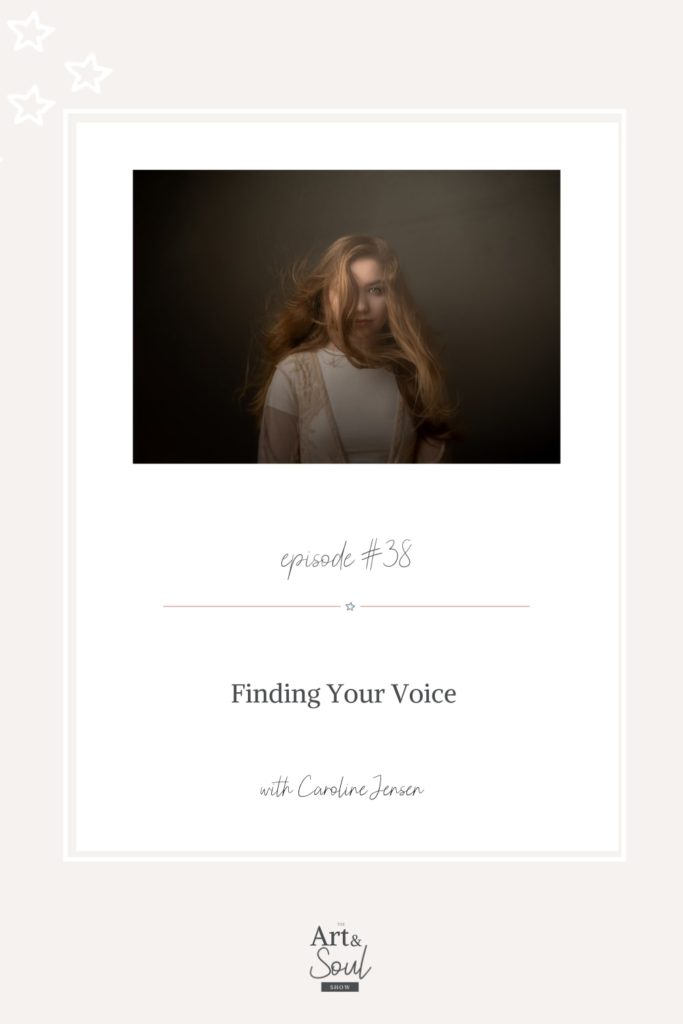
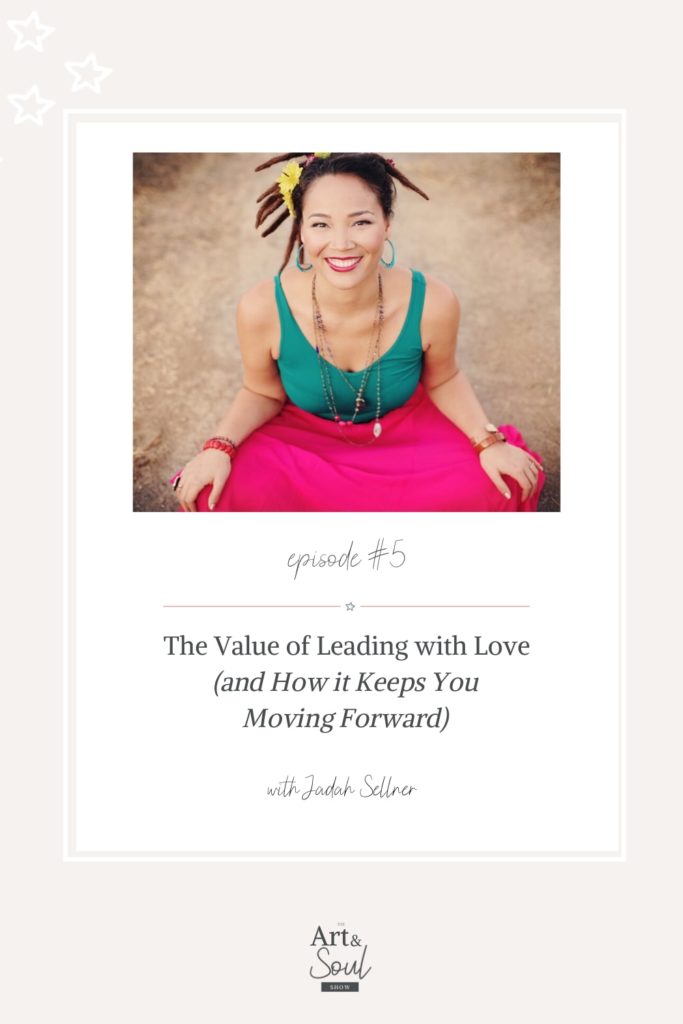
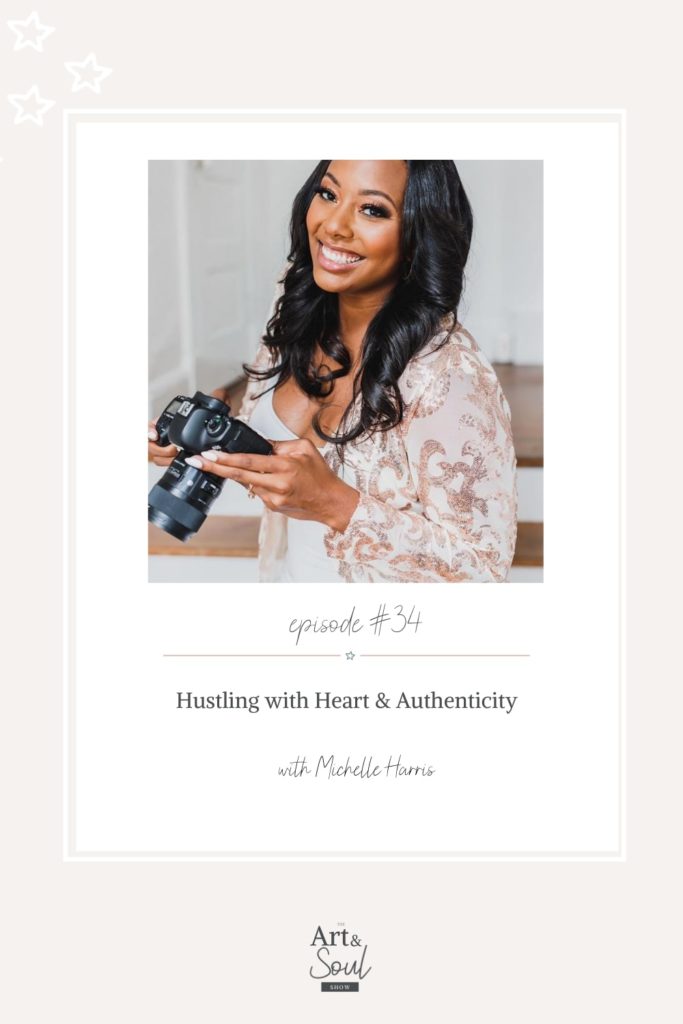
Transcript
[00:00:00] Todd Herman There’s no authentic you the most authentic version of you is actually if you were to find it, I think it’s the healthiest way to define it is when you’re doing something because you want to do it, not because of some sort of external expectation or because of what someone else wants you to be doing. But you’re doing it because you want to be doing it. That’s you probably in that moment being the most authentic version of you.
[00:00:29] Lisa DiGeso Welcome to Art and Soul, where we dove into heart opening chats on photography, business life and that messy in between. I’m your host, Lisa DiGeso. So a mom, a photographer and entrepreneur, and I’ll be sharing honest conversations and advice for photographers with insight on mindset, entrepreneurship and creativity. The goal of this podcast is for you to be able to gain insights and strategies that will get you real results. Because let’s face it, having a photography business can be lonely, but it doesn’t have to be. This is the place you can go when you need a boost of encouragement, a kick in the pants and inspiration to pick up your camera. This is the Art and Soul show, my friend
[00:01:13] Lisa DiGeso Welcome back to the show and I am so excited to share with you my guest today. Todd Herman is a peak performance coach, and he was actually my very, very first business coach way back in 2015, and I have been dying to have him on the show to share with you. He is a peak performance coach and a strategist for ambitious entrepreneurs. He works with athletes, leaders, celebrities who want to achieve their wildly outrageous goals. Now he’s helped clients reach the Olympic podium, build multimillion dollar companies and, more importantly, master their inner game so they can enjoy the process on the way to victory. The Boston Globe calls him a sports trainer superstar, and he’s been featured in over a thousand media platforms. His signature business program, the 90 day year, has been named the world’s top leadership and skill development program twice, and it’s amazing. I have taken it. He’s also the author of The Alter Ego A Fact, an incredible book about the power of Secret Identities to transform your life, as well as My Super Me, a book for children to help them find their hero within and be more confident and courageous. He’s originally from Alberta, Canada, and he now lives in New York and Colonna with his wife and three young children. I can’t even express to you guys how excited I am about this interview. So without further ado, here is Todd Herman. Welcome, Todd.
[00:02:44] Todd Herman Lisa, this is long overdue, but I’m excited to be here with you.
[00:02:48] Lisa DiGeso So tell us who you are and what you’re passionate about.
[00:02:52] Todd Herman Woof, that is such a massively loaded question, right? So who I am, maybe a rabble rouser and a cage rattler when it comes to the world of mindset and, you know, personal performance, I’ve I started a peak performance and mental toughness coaching and training company in 1997, working with young teen athletes in Edmonton, Alberta, Canada, where I lived at the time. Long story short grew that to the largest peak performance and mental training company in the world, working with Danish Olympic team South African Springboks, Real Madrid soccer teams in the NFL and PGA. Like all over the place and that business, which I ended up selling and then evolved into another training company that worked with entrepreneurs like yourself, executives just like in public figures all around the taking the same principles that we would use for athletes to help them grow quickly, develop and applying that same methodology to how you would grow a business. So you’ve got your own personal performance, you’ve got team performance, you’ve got organizational performance and built up a company called 988 a year, which is that system for how you do that. But along the way, one of the things that I’m sure you probably maybe talk to your crowd a little bit around the importance of finding kind of a niche to go and own early on, right? So if you want a good example of how a niche can blow you up, I am the poster boy of that because when I’m probably most known for is being the guy who build alter egos and secret identities for pro athletes, public figures, leaders around the world. If you’re if you’re watching this, that bright yellow book behind me is the is the book itself that I ended up writing, but that’s pretty niche. Like if you’re known for the person as being the person who built alter egos typically on a plane or a flight, people will go, Wait, what did you say? I’m like, Yeah, it’s actually one of the secrets of performance is knowing how to shape, shift and craft and identity that’s custom built to go and win on whatever field of play that might be. And I think it’s super relevant for your world and your people because a lot of them might be just starting something new or they’re now pursuing this creative outlet, but they’ve never done it before. So giving themselves the permission to now reinvent themselves is one of the hallmarks of the best performing and also happiest people on the planet. Because the one thing that it does the best at doing is it grounds you into a playful mindset, and having a playful mindset is is why I was called it the golden key that unlocked. The zone and flow state, because if you don’t have an attitude of playfulness, it’s really, really difficult for you to be successful because of percent. Yeah, so so that’s a little bit about me. I’m also a dad to three little kids, and I split my time between New York City and not too far from where you’re at right now, Colonia British Columbia.
[00:05:45] Lisa DiGeso I love that. So I want to dive in a little bit deeper and talk a little bit more about alter ego because, yeah, no joke right here. I just finished reading it for the second time, just a brush off because it’s such an amazing read and I’ll make sure that we link in the show notes for our listeners and watchers as well. But can you share how you discovered your alter ego and how you use it to mentor your clients for achieving that greatness?
[00:06:07] Todd Herman So I discovered mine out of necessity when I was a teenager. You know, I had some. Let’s just call them difficult and challenging things that happened to me as a young kid, things that I wouldn’t wish on someone else and struggled with my own, well, basically mental health. And so a lot of times when those things happen to you, you attach those labels or those things that happened to you. It’s about you now as opposed to it being an event. You know, I was just too young to kind of know how to navigate the six inches between my ears. But I was a good athlete and I had these aspirations of, you know, going on and playing in the NFL even was not good enough to do that. But I did get a bunch of college football scholarships. And I actually don’t view it as I got them. I actually think my alter ego and in my alter ego was a composite of two of my heroes in football at the time, Walter Payton and Ronnie Lott, both Hall of Fame football players and where I grew up. I grew up on a big farm and ranch in southern Alberta and where I grew up was sort of rich with Native American history. In fact, when Sitting Bull fled after the Battle of Little Big Horn across the border from America and to Canada, he actually came through our family’s land. So there was, you know, right around on my horse Cracker Jack as a kid and look for like old fire rings and stuff like that and find artifacts and. And so the other part of my alter ego was a tribe of five Native American warriors, and I had this whole visualization routine where I would walk myself to the process of becoming what I called at the time Geronimo was, which was and I talked about the book, the importance of getting that alter ego a name. And so that was my first alter ego. And it helped me because my insecurity was there and playing football. But, you know, when I was about six feet tall, but I was like a hundred and fifty nine pounds soaking wet. Not typically what you need to be successful. You have to learn a little bit more meat on the bone, so to speak. And but when I was when I was playing through the avatar of Geronimo, I mean, I was there to destroy people like it was just completely unlocked, a lot of performance for me. And so that was my first alter ego. And then when I got done playing college football, I got a bunch of scholarships and I started working with athletes. It wasn’t in the very beginning stages that I used it as a tool for other athletes because I thought it was very unique to me. But once I started working with higher and higher caliber athletes and I was working in, I’ve worked in over 80 different sports. This common thread started revealing itself at the best of the best, where I would say something like, Oh, I step into this persona or I have this identity that I that I use. And again, I’m intimately working with people, right? Like this is one on one, and I’m really seeing what the actual best of the best are, not what they’re saying at press conferences, not what they’re saying in a book. Because again, just like me, they were a little bit they thought that maybe they’re a little weird for doing it and. And so I just sort of saw what was happening. I’m like, Wait a second, this is an actual thing. And I started just interviewing like, how did you get into yours? And you know, this is what I did. And so I interviewed all of my different clients around this process, and I built it into a method. And that’s how I became known as kind of the alter ego guy. Was that and so there’s lots of different angles and ways to use it. But at the end of the day, what it does is it actually helps to transform someone’s life.
[00:09:22] Lisa DiGeso It does. And it’s funny because I didn’t realize I it was something that I was I’ve been doing since we started Milky Way. And like, you know me, I’m an introvert. Like, I am extremely introverted. Me coming out and having a podcast and going on video is like extremely hard for me, but I love it. So it’s just this weird thing that I have to overcome. So what I realized was I wear hoop earrings and lipstick. And like those, those are my totems. That’s how I get into the Lisa character that I need to show up to play. And so I was like, Oh my gosh, when I read that in the book, I was like, I’ve been doing this. I didn’t even know I did it.
[00:09:55] Todd Herman Yeah, but that’s the most beautiful thing is that it’s actually one of the reasons why I sort of rail against the self-help and personal world for such a long time now. I I I love the fact a lot of people would, maybe in the past, not feel good about the fact that they were practitioners because they wanted to have maybe some sort of larger influence. But I love the fact that I’m a practitioner like I am on the field with people every single day, like I’m in the trenches with them and so many of the ideas that are in the self-help world, in pop psychology books and in most of the time, in the biggest. Bestsellers. Think about it, like why would something become such a bestseller? It’s because the ideas in it are super palatable. That’s why, you know, but every time I’ve talked about this topic and people say, just like what you said, I’m like, Yeah, because you’re literally using what’s already built inside of you, like you just fell down this natural river. You’re not fighting against the current. And we do it. The great thing about this is I sell people on stages. I speak around the world. I just got back from speaking Lithuania and in Turkey. I’m like, Great thing about this is all of you know how to do this already because you already did it when you were kids, when you were at your most playful, where your creative imagination was at its height. And then we, we we learn ourselves out of these processes. So, yeah, I mean, it’s not it’s shocking or surprising to me that you would lean on this as a tool to use.
[00:11:17] Lisa DiGeso I love it. I mean, when did we start playing dress up, right, like and trying on different personas?
[00:11:22] Todd Herman Yeah. Like, I mean, the other way to come at this is especially for people in North America, because Halloween is such a big thing in North America, it’s like, have you not seen a friend of yours who puts on a certain costume? And all of a sudden, some part of their personality lights up? And that’s there’s actually a whole bunch of psychological and physiological reasons why that happens. But that should be telling us that this could be a mechanism to help us actually really move through the initial inertia stage. It like the really hard parts of starting something new, right? Like blasting that rocket ship off of the foundation is when most of the fuel gets used up, right? Well, all of your people, that would be maybe new to this world or they’re trying to make a transition. Don’t do it with the self that you already know. Like, let’s develop a new one and you can do that. And I think that’s one of the reasons why this idea is like, you know, it’s the book’s been translated into 14 languages now around the world. And in fact, my Korean book, there’s a boy band called I think it’s like, Yes, but we’re not. Yeah. The biggest nightmare. One of the one of the lead singer shared my book, the book on Instagram Stories, and the book is like blown up in Korea. Yeah, but it’s such a universal idea for people.
[00:12:41] Lisa DiGeso So, yeah, I love that. Now, can a person have more than one alter ego like a supernatural alter ego?
[00:12:47] Todd Herman Yeah, yeah. And and what this maps to. So it’s not just my opinion on this, right? ‘Cause, you know, if I’m the guy who’s selling alter egos, then you know, someone goes, Well, of course, Todd’s going to say that. Well, no, it actually maps to in the world of psychology for the longest time. One of the kind of five grounding principles in psychology was this idea of single self theory that the people who had the best mental health had one identity, one single self would be associated with. Now, me again, I’m on the field practitioner that made no sense and anyone listening to this, if you if I just bring up some examples like have you ever met an athlete or someone that’s on television, you know, in public and you’re like, Oh, they’re a lot different than I thought they would be. Right? And I’m like, Yeah, of course, I don’t want my football player coming off and acting that way in society or among their family or their friends. So a lot of times our identity is contextual to the role that we’re playing. Like who you are as Lisa, the mom and Lisa, the interviewer. And then Lisa, the lady who’s taking the photos and then Lisa, the teacher. All different elements of you need to come alive in order for you to be successful in that role, right? So that makes sense to everyone intellectually and in the world of psychology basically crumbled in twenty eight because three of their major sort of foundational pieces were proven to be wrong. One of them being single step theory. Yeah, and and now one of the faster fields of study in the world of psychology and philosophy is multiple self. A study that just came out two years ago showed that people who I saw themselves as having many identities, many sides of who they are actually have the lowest rates of depression, anxiety and stress disorder than someone who tries to always live through one rigid self. And like I always say to people, Show me your self under a microscope. There is no you. Even these words that we use, there’s no you that’s there. There’s many sides of you that are there. And and so take that. And now let’s start to build out identities that are going to help you custom built to win in these different areas. So me, for example, Geronimo would not work out very well as a dad. Yeah. So my source of inspiration and again, an alter ego, another way of looking at it is it’s just a mental model. It’s a vision and an image that you have in your mind of what you’re trying to move towards and build towards. And because 70 percent of your brain is dedicated to the visual cortex, having a picture in your mind of what you’re trying to move towards is really helpful for you to achieve it. So my picture of what I’m trying to move towards is a composite of my, my dad and Mr. Rogers and Mr. Rogers is on the polar opposite end of the spectrum. Of what my identity is, that I’ve built in business especially, which is like a hard challenger type personality who needs to crack through the exterior of hard charging entrepreneurs or athletes and people, sometimes with big egos. Yeah, my kids don’t want the challenger dad. I like him. That’s just putting locking horns with little kids. So Mr. Rogers is my source code of inspiration. Now, I didn’t pick him off of a shelf because I’m like, Oh no, I grew up with Mister Rogers. I know him. I revere him, and I know his mannerisms. So I mimic that. And there’s nothing false in that, like being able to act through the behaviors and the actions of someone else. I’m not going to become Mister Rogers. No one would even accuse me of being Mister Rogers. But if it helps to level up my performance with my kids, then that’s a pretty big win for my kids. And then they get a better side of me, more playful, more fun, more creative, more loving, you know? And it’s it’s there’s nothing false in that whatsoever. You know, it’s not like we’re all baked with like a perfect operations manual for how we’re going to live our lives right now. So this helps us develop an operations manual that’s already resonant with us because we already know who were inspired by.
[00:16:44] Lisa DiGeso So, yeah, I love that so much, and it really touches to my heart so much because I’m an anagram three, which means like I am always commuting to what I think people want from me. And so I’ve always struggled with that feeling of feeling authentic because unlike am I being authentic? Because I’m just giving you this version who I think that you want for me? Yeah, whereas when you put when you shift it that way and I’m like, No, I’m using these identities to connect and to tap into what I need to perform for myself in that situation. That’s right. So this is necessarily isn’t a bad thing, even if even if I’ve been judging it that way, you actually may not be.
[00:17:20] Todd Herman Yeah. You know, and you bring up a term that I think has become a trap for the last especially six years, and social media has kind of spread it. Influencers use it a lot, and that’s authenticity. And ask yourself, right, like even when does that mean? Yeah, exactly. That’s what I say. I’m like, tell me what authentic self means because and I actually encourage people to not read that many nonfiction books. In fact, you know, with the exception of this yellow one. But I encourage people to read away more. If you’re going to pick up a book, pick up a biography or an autobiography. Because if I picked up Lisa being digestives autobiography, here’s what I’m going to read because I’ve read over 600 biographies. It’s my favorite type of book to read. Tina Fey, Bob Newhart, Will Smith’s, or Matthew McConaughey is like on and on and on, and then business leaders and politicians and all sorts of people. Here’s how I’m going to read. I felt like a bit of a fish out of water didn’t really grow up in the way in the environment that I thought I should be growing up and wanted to be somewhere else. You know, it had some struggles throughout my adolescent years felt like the fish out of water doubted myself, struggled with some self-esteem issues, had some confidence. Staff had this desire and this wants to do something creative. So I pursued photography. And what I’m going to hear in the end is here’s someone who’s had a successful life and they had self-doubt and self-esteem issues and confidence issues because literally over 600 books that I’ve read has been exactly that story. So then what I tell people back is, so what if we’re not supposed to overcome self-doubt? What if that’s just a part of the human experience? Because everyone else that I’ve read stories about has battled it in some ways. Now you might find the odd person who didn’t battle self-doubt because I have a couple of athletes that it’s very foreign idea to them. They just they’ve always had this sort of centered place of confidence with themselves. But it’s rarer than it is common. And, you know, people who battled some self-esteem issues and people who battled some difficult things happen to them when they’re kids. The point about that is that this idea that we’re supposed to now, because if you want to fall down the rabbit hole of trying to overcome self-esteem issues, the moment you try to center something like that and try and backstab it with a pencil, it’ll squiggle around it in a move you’ll never, ever solve it. So kind of the main point that you read when you read all these stories is really the hardest part of life is being honest with yourself about what it is that you want and then pursuing it. That is after, you know, I’ve done over 19000 plus hours of coaching. I’ve worked with you and Aaron and so many other amazing people. That’s the hardest part is getting people to admit, What do you want? Like, I’ve had athletes who were six years into a league and doing really well. They didn’t want to do it anymore. Yeah, and then but they had held on for even a couple of years longer. And I’m like, No, what do you want? It doesn’t bother me. I’m the most honest person around you because I don’t get paid, whether you’re in the league or not. Yeah. So what do you want? And then they retire. And that’s. Those are my favorite wins when people move on to something new or when a business owner retires, a business they’ve been running for 13 years because it’s killing them every single day to wake up and do it like that’s inspiring someone stopping doing something and moving on to something else. Yeah. So going back to the conversation around authentic self is there’s no authentic like you. The most authentic version of you is actually if you were to define it. I think it’s the healthiest way to define it is when you’re doing something because you want to do it, not because of some sort of external expectation or because of what someone else wants you to be doing. But you’re doing it because you want to be doing it. That’s you probably in that moment being the most authentic version of you. Now, whether or not you’re doing it the right way or you’re doing it in the most efficient way or the effective way or whatever. That’s a completely different discussion, but at least you’re doing something that you want to be doing. Yeah. And then, you know, if it’s something that impacts people in a more positive way, then that’s even better. So when you show up and you’re quote performing and again, people have a hard time with that word sometimes. And again, I tell people, listen like whether I’m a jerk to my kids or whether I’m Mr. Rogers to my kids, that’s a performance because performance is about the thing that you do to get a result. So if you’re doing something in my experience of Lisa in this moment is she makes me feel better about who I am or she lighten the load on my day because, you know, you bring that, you know, love lovely light spirit that you always bring. And that’s a fucking win
[00:22:00] Lisa DiGeso Oh, I love that. I love that. I love this conversation. OK, so I want to talk about totems a little bit more and why they matter and how and how that can really help tapping into that alter ego persona.
[00:22:15] Todd Herman Yeah. So in the book I talk about when you’re going through the process of like, you know, custom building this identity for yourself, where and it’s a fun process because this is like one of the few times in your life where you get to actually choose how you want to show up and then you’re, you know, you’re being inspired by someone or something else. A big part of making this method work. And again, in the book I talk, I really try to like push it through the lens of also the science of why this works as well, like, you know, physiologically or psychologically as well. And so totems and artifacts, whether it’s something that you wear, it’s the lipstick they have. It’s the fake glasses that you might use or it’s the proverbial cape that you put on. But the clothing that you wear, the uniform that you have, it’s so important because a it creates a ritual for yourself, like there’s this ritual that you’re going through, and a ritual is different than a routine or a habit because a ritual and why it’s different and stronger is there is a meaning and a story or a narrative around why you’re doing the thing. So me, we talked about my first alter ego and then when I got into business, my second alter ego that I built out because I was struggling with not making the phone calls. So here I had this like fledgling little peak performance business, pretty much just word of mouth. But you know, I needed to start actively marketing this business and every night I would resolve that. The very next day I’m going to make the phone calls. I’m going to call these people, I’m going to do the outreach. And again, this is back in 97 98 and in the end of that day would come. Next day would come and I didn’t make the phone calls. I was insecure about how young I looked because I was 21, but I look like I was 12. That baby face and I had these rules in my head that I couldn’t be respected yet because I didn’t have four degrees with a bunch of letters behind my name. And I didn’t have three bestselling books yet because and again, we do that, we have these rules in our head and I’m sure this is resonating with some of the people that are out there, right? I don’t have a website yet, you know, I don’t have thirty six clients yet. You’ve got these rules, but that doesn’t mean you can’t start and start modestly. Like, I never advertised myself until five years in as someone who would work with pro athletes, even because I wasn’t qualified yet. Like, I was good at working with young athletes and I was cheap as hell to work with. But it gave me a ton of reps. And I know people probably talk to you about pricing stuff in there. So I’m like, and I did so much stuff for free and I had no concerns around it. Like I just wanted, like in this world, it’s just get better at the photography, get in creatively, express yourself and we’re doing something for free. You actually get a lot of latitude because you’re like, Yeah, I am doing this for free. So I’m going to do some things for myself here too. Yeah. So I wasn’t doing the things I needed to do. So I remembered, I’m like, Wait a second, I use Geronimo. Why can’t I use something else here? Geronimo wouldn’t work because he was built for football, so I thought about who I’d be inspired by. That would have the traits that I need. And so it was Superman. Benjamin Franklin, who I loved, still kind of revere his ability to reinvent himself because he held so many different. He was an inventor. He was a statesman. He was, you know what? The founding fathers of America and then Joseph Campbell, who wrote The Hero’s Journey, all that. So I took qualities from each of them that I built Super Richard and I went to LensCrafters in West Evans and all at the time. And I have perfect. I said, I’ve got twenty fifteen missions still to this day I do. But I went. I bought a pair of fake glasses back when wearing glasses was like everyone was getting Lasik surgery. No one was buying glasses. It still had the whole nerdy attachment to it or label. And even though Tom was like, Wait, you don’t need glasses, like what? And then I can just shut up and let you buy the glasses. So I got a pair of glasses and that’s what I called it. My reverse Superman Superman took off the glass to become Superman. I put them on to become Super Richard. And it was that, but it was that ritual. So these glasses, you know, if you’re watching this, if you’re listening to this, I’m holding my glasses over. The arms of the glasses became this like on the side of my head. Here was a switch. And when when the arm because we all know when putting on glasses, there’s that back sliding. And it was turning on Super Richard, who embodied. And so these glasses embodied the traits that when and when I put them on, I had to change my state like Super Richard would never think the thought that he wasn’t worthy enough to make the phone call and how it evolved actually is Super Richard became the advocate for Todd stuff. I was really good at building great rapport with young kids. I loved sport. I didn’t have to manufacture that. It wasn’t a business to me, but I wasn’t doing the thing. So Super Richard became Todd’s advocate. He became the guy who could go out and sell Todd, and that’s how it all happened inside of my head. And it transformed just my results. And six months later, I had just bought two really big workshops and speaking for myself and I hung up the phone back when you hung up, phone, hung up the phone and I looked down on my desk and my glasses were sitting there and I thought, Wow, I finally became I became that person. So kind of a useful picture in someone’s mind is, you know, imagine like a two circle Venn diagram. And there’s the there’s the version of you right now, and you might not have all the qualities and traits that you think that you need to go and win. But then there’s this idealized version of yourself. And we could call that your alter ego who embodies already the traits and the more and more that you leverage this thing. What happens is it actually pulls this other version of you into it. And then finally, at some point, the two circles overlap and you’re going to have that moment. Beyonce retired Sasha Fierce. Lady Gaga has been talking recently about retiring Lady Gaga. They became what they most wanted to be creatively or in whatever, you know, mechanism or fashion that that alter ego is meant for. But having the device, having the glasses or the shirt or the whatever helps to get you into a ritual of showing up in that way.
[00:28:20] Lisa DiGeso I love that for me. A few years ago, you know, actually, it was probably about eight or nine years ago. So I have my favorite lens. I eat shop on my shoe. It’s just this itty bitty guy. But when I would get out of my vehicle and I would put my big ass 200mm lens look like I’m a paparazzi, I’m about us. Even if I wasn’t even using it on that shoot, I felt like a bad ass photographer. So I what I would do is I’d put it on it, beginning my shoot, take a few pictures and then take it off. Yeah. And so I really I love that because bringing that back to photography, that was my totem for the longest time.
[00:28:54] Todd Herman Yeah. So that what you did there is it’s a bit of a more advanced technique that I’ll talk about with people, but that’s the classic, you know, for for some athletes, it’s the when you when you step onto the ice having a big move like some
[00:29:08] Todd Herman grand like, I wrote this down, what was it? It was like the
[00:29:12] Todd Herman bear with the ground punch. Yeah, that’s
[00:29:14] Lisa DiGeso the ground punch. Yes.
[00:29:15] Todd Herman Yeah, yeah, it’s that. It’s that big move that you make now. For some other people, they’ll actually employ just a super subtle, tiny little move that means something big to them that they know no one else is going to notice. But it’s their secret. Like, You know what, I just did, but it’s there like, you know, reverberating ground punch that I talk about in the book to send a message most to yourself. Yeah, that oh, shit’s about to get real fast.
[00:29:42] Lisa DiGeso Yeah, yeah. Who am I to do this meet? I’m to do this. I’m on it. Yeah, I love it. Love it. Love it. All right. I got to switch gears a little bit. So your book was made into a TV show called Alter Ego. Can you share a little bit about that?
[00:29:58] Todd Herman Yeah. So I am, as you know, I am very militant about protecting intellectual property and so funny thing that happened with the show. I own every iteration of alter ego with the exception of alter ego, because I can’t I can’t trademark that, but I own show method frameworks system, you know, on and on and on and on. And when you were running a business like this where you’re teaching stuff or training or you’re coaching, you’re writing books, it’s important to protect your IP. So. I didn’t know that the show was in development until they want, they wanted to call it the alter ego show, but they couldn’t because I own it. And so that’s how I kind of got roped in first. And and then and they didn’t kind of some of the people that were involved in the production didn’t realize the level of maybe outreach or notoriety that I had around the term. And Laila Ali, who’s a friend, she was on The Masked Singer because alter ego show was sort of a spinoff from The Masked Singer. And the reason it was a spinoff was so many of the performers on The Masked Singer would talk about how this costume has allowed has freed something within themselves because no longer where they’re being judged by the already existing idea of who Wayne Brady is. Wayne Brady probably had the best quote about it, where he said it’s allowed me to lead with talent first, as opposed to name first because he said, you know, everyone would go, Oh ha ha ha ha. Wayne Brady could never do that. But here I am doing it. So they had this show spinoff got me involved, so I became I was trying to angle to become the actual host of the show because I could have taken a lot of the experiences of the actual singers and talking about talked about it more deeply. And then related it to the audience better because in some ways in the production, I was kind of trying to move in that way. I think they missed a little bit of that boat, but I mean, it was still successful. So I was a bit of an advisor on that show and now it’s been sold into. I think we have it into three other countries now like, say, India, Israel. Yeah, a couple of countries coming on board with it, too. So yeah, it’s been. It’s just been fun to see the the idea proliferate as it has. And as well, I don’t know if you know about this, but last year my book became the first ever book to get a shoe deal. So, yeah, so Brooks, the very famous running shoe company, they came out with a line of alter ego shoes in Europe. First, they’ll come to America and Canada this year. Yeah. So we built out five different alter ego type shoes. And then inside the box, there’s this whole like pamphlet and sort of little book helping you to like, uncover what you’re running alter ego would be.
[00:32:44] Lisa DiGeso I love that. I love that so much. I can’t wait. I’m getting my son a pair. I love it. Get myself. Phone to you. All right, so you ready for the lightning round? Let’s do it. OK? Coffee or tea?
[00:32:58] Todd Herman Oh, you’re killing me. I’ll say coffee.
[00:33:01] Lisa DiGeso Favorite TV show as a kid
[00:33:03] Todd Herman probably Inspector Gadget.
[00:33:07] Lisa DiGeso One last thing you did for yourself as an indulgence.
[00:33:10] Todd Herman Wait, I got to go back. It was Smurfs. How could I deny myself? Laughs first. Oh, my favorite and favorite indulgence.
[00:33:17] Lisa DiGeso Last thing you did for yourself as an indulgence.
[00:33:19] Todd Herman Oh, last thing I did for myself as an indulgence. Wow, that’s a good question. Well, it would be massage, I guess
[00:33:27] Todd Herman the other morning person or night owl morning.
[00:33:30] Lisa DiGeso What did you want to be when you grew up?
[00:33:32] Todd Herman I wanted to be Matlock, a lawyer. Yeah, I really liked that powder blue suit that he had on, you know?
[00:33:39] Lisa DiGeso You remember that that show that TV show Quantum Leap? Oh yeah. I want it to be that guy, really. I did like,
[00:33:45] Todd Herman I have such a clear picture of what it is to right now. Yeah, that’s exactly well and well. Going back even younger, though, know this is me and my alter ego best. I loved Michael J. Fox on family ties. So I grew up in a rural rural town. You know, 65 kids kindergarten to grade nine. That’s where I went to school grade school, actually. But I wanted to be Alex P. Keaton. So one day, one week in a day, I dressed up in a suit every single day and I took my dad’s briefcase to school because Alex P. Keaton had a suit and he had a three-piece. And so that’s what I did and I got. And I tried to make everyone call me Richard T Herman because my first name is actually Richard. It didn’t work and everyone made fun of me.
[00:34:28] Lisa DiGeso you know, I went to school for heritage dance. What the queen?
[00:34:33] Todd Herman Oh, of course you did.
[00:34:34] Lisa DiGeso But we’re not English.
[00:34:37] Todd Herman We are Commonwealth, though, so. Yeah.
[00:34:40] Lisa DiGeso So what’s your go to karaoke jam?
[00:34:42] Todd Herman Sweet Caroline.
[00:34:43] Lisa DiGeso Good one. All right. Most luxurious vacation you’ve ever been on.
[00:34:48] Todd Herman There’s been a few. My favorite is the Four Seasons and pointed me to Mexico. A set of Puerto Vallarta of it is fantastic, and the kids love it to solve it. Yeah.
[00:35:00] Lisa DiGeso What’s your anthem? That song that pumps you up?
[00:35:04] Todd Herman Lose yourself by Eminem. That’s an easy that’s a layup, honey. Yeah, that’s a good one. I was just playing it with the kids last night. So, oh, so good.
[00:35:12] Lisa DiGeso So what advice do you have for someone who’s just starting as an entrepreneur?
[00:35:16] Todd Herman I would be relentless at constantly trying to level up the quality of. People that I’m around, one of my great strategies that I guess help me develop quickly was I had mentors throughout my entire life, and if I look at any, there’s a three year period where two of my key mentors passed away and I didn’t have a key kind of like mentoring relationship happening at that time. And I would say that was probably the slowest growth period in my in my life. But you know, it’s undeniable that when you are around amazing people that your level of luck just amped up to a degree that just serendipitous things happen. People help you out, like that’s how it’s done. This idea of being the show, like we use these words like personal development, self-help, solo entrepreneur, like that’s it’s such a misnomer. No, it’s it’s team help its team develop. Like, I mean, I want to have team around me and the better quality people that you have around you. It’s only going to create an environment where the inevitability factor goes up. So I would just encourage people to stay really engaged in communities, always try to find and be around better quality people reach out to people, be humble enough that at any point, no matter how successful you are, that there’s always someone that you can add value to and that would love to add value back human beings by their very I just have this frame, which has helped me out a lot that everyone wants to be my friend. And, you know, and I’m kind of giving you the secrets of my own six inches between because I know that I will always follow through. I know I’m going to help out. I know I’m carrying. I know that I’m kind. I know I’ve got value, but I’ve always had that frame in my head. So that’s the biggest. That’s the biggest one is is the people side of things. It’s lonely. It’s a lonely road. Like entrepreneurship is. It is a difficult thing. Freelancing is a difficult thing. So let’s make it less difficult.
[00:37:27] Lisa DiGeso Yeah, I love that. That’s great advice. So what makes your soul light up
[00:37:32] Todd Herman doing stupid stuff with my kids and then seeing my kids have a breakthrough like they’ve tried something they’ve been working like just happened two weekends ago? My little guy, Charlie, who’s very rough and tumble boy, but he just had a struggle with like learning how to ski, and he resisted and resistant, resisted. There’s a lot of fights on the ski hill with him, you know, that said, if you’ve ever seen those videos of the person trying to walk the dog and they’re just like laying on their side and they’re just like limp as the person’s literally dragging Charlie down on a ski hill. And he finally got it two weeks ago and just how excited he was when he got to the bottom, he did the entire thing and he didn’t fall once. Like, that’s awesome. And then seeing it happen with clients do when they have that huge breakthrough. So that’s that’s it.
[00:38:22] Lisa DiGeso Love it. So where can our listeners learn more from you?
[00:38:25] Todd Herman So ToddHerman.me Is kind of my home based on the internet, and that’s where, like links out to all the other different businesses and things that I’m involved in. Are there books to the book Minority Your World and and stuff? So that’s it. And then on Instagram and elsewhere, it’s typically tied to underscore Herman as my username. But yeah, that’s where you can find me
[00:38:46] Lisa DiGeso awesome and I love to end my interviews. This last question, and it is what are you currently curious about or artistically curious about?
[00:38:55] Todd Herman So I used to teach country dancing on Tuesday nights at Cook County Saloon in Edmonton, Alberta, when I was in college, and my middle daughter Sophie loves to dance, and so I’ve got a course that her and I are both going through. And so I played up to the TV in the main room, and so her entire learning dance moves together right now. I love it so much. Yeah, so great.
[00:39:21] Lisa DiGeso Well, Todd, thank you so much for joining me today.
[00:39:23] Todd Herman Yeah. Well, it’s been a pleasure talking to you again. So it’s been too long.
[00:39:28] Lisa DiGeso All my friends, I just loved this conversation with Todd, and I love the idea of having an alter ego. I know that I sometimes do that depending on the different roles that I’m working through, whether it’s being a photographer, being an podcaster, being an entrepreneur. So I would encourage you to look for Todd’s book, The Alter Ego Effect and the hit reply. Send me a little note and maybe what you do as you’re told him for your alter ego or how you’re going to be implementing that in your work, your business and your life. Thank you so much for tuning in today and spending your time with me. I so appreciate you tuning in every single week, sending you so much of my life and love today and every day. We’ll see you next time.
share the love
[Sassy_Social_Share]
recent
Podcasts
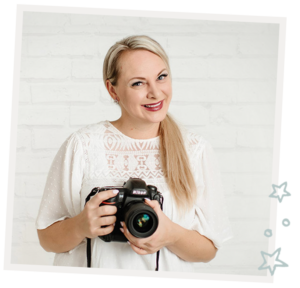
I'm
Lisa DiGeso
I’m on a mission to create uplifting online experiences for photographers ready to elevate their art, their business and their mindset.(...and have fun along the way!)
















